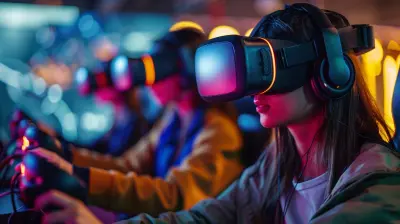The Intersection of Music, Culture, and Identity in Games
22 July 2025
Gaming isn’t just about slaying dragons, sprinting through war zones, or building pixelated cities anymore. It’s become a bona fide art form—a digital stage where music, cultural values, and personal identity dance together in unforgettable ways. Over the years, video games have evolved into immersive experiences where stories are told, emotions are felt, and identities are explored. And guess what? Music is right there in the spotlight, orchestrating the mood and amplifying the message.
From bouncy 8-bit chiptunes to sweeping orchestras and culturally rich soundscapes, music in games goes beyond background noise. It becomes the heartbeat of the story. But let’s go deeper. How does music reflect culture in video games? And how exactly does all of this shape—or even challenge—our identity as gamers?
Let’s dive into that intersection where sound, culture, and self-expression collide.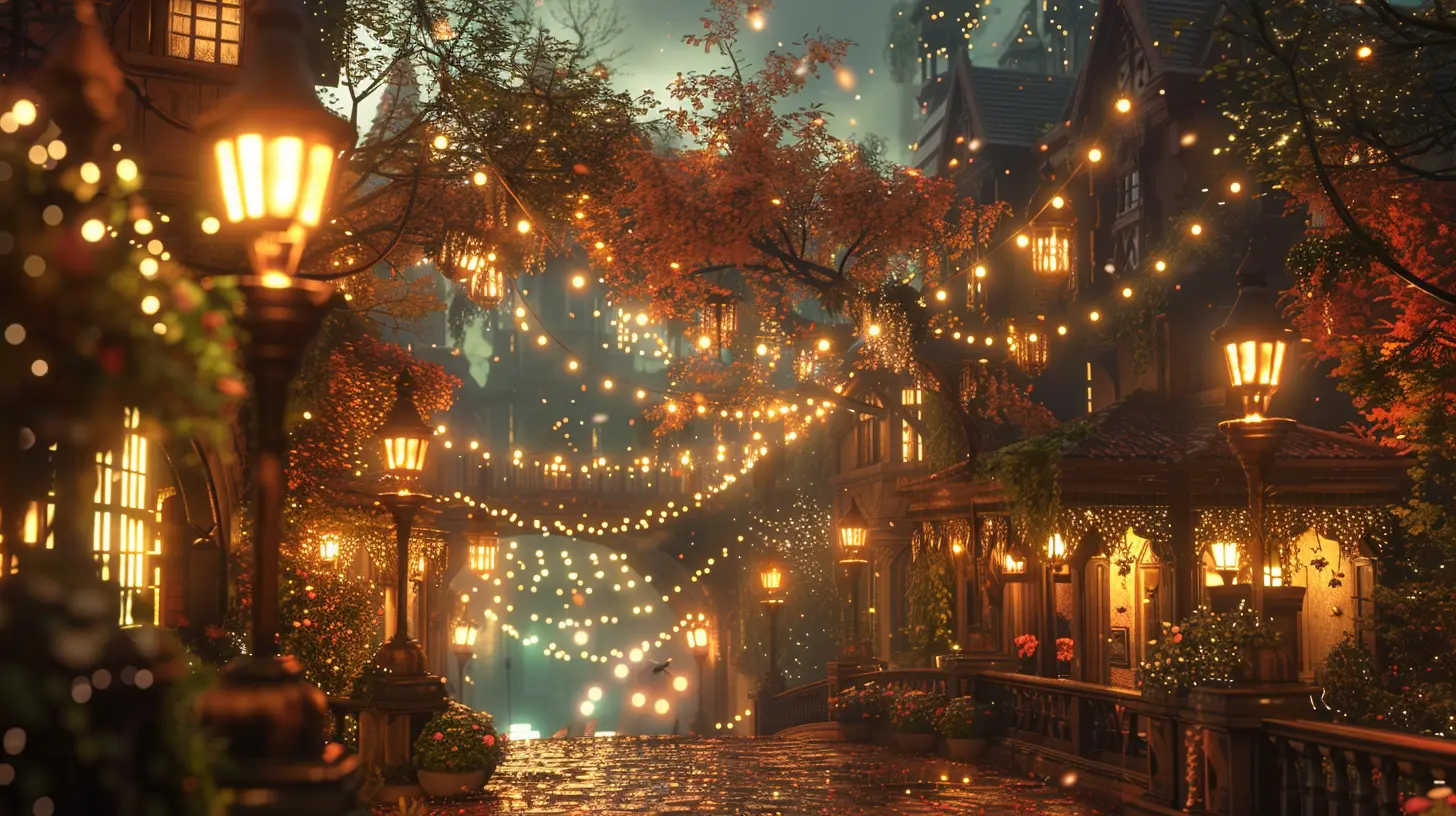
Why Music in Video Games Matters More Than You Think
If you’ve ever caught yourself humming a game theme days after playing, you already know music matters. But it’s more than just catchy tunes—it’s emotional architecture.Music in games sets the tone. It builds tension before a boss fight, soothes you in safe zones, and even subtly hints at what’s about to happen next. Without music, games would feel flat. Imagine playing Skyrim without Jeremy Soule’s soaring soundtrack—it just wouldn’t hit the same, right?
But here’s the kicker: music does more than trigger feels. It’s a storyteller. It whispers about cultures. It bonds players to in-game worlds. It even acts like an invisible character in the narrative.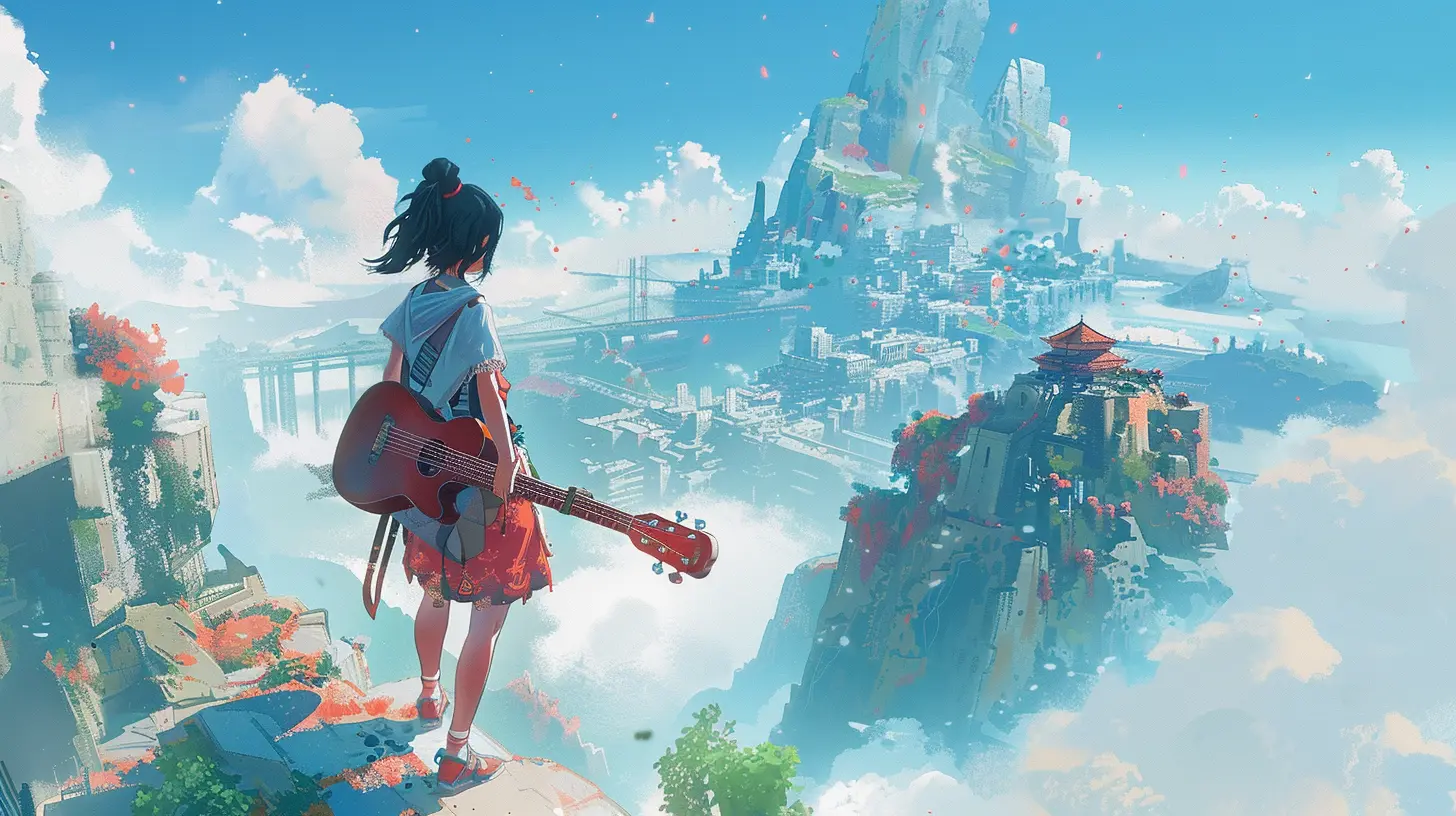
When Culture Is Crafted Through Sound
Now let’s talk culture. Video games have become global stories, and music is one way they root those stories in something deeper.Take Ghost of Tsushima, for example. That game is basically a love letter to feudal Japan. But it's not just the visuals or the language—it’s the music. The soundtrack uses traditional Japanese instruments like the shamisen and shakuhachi to build authenticity. When you walk through a field of flowers and hear those woodwind melodies, you're not just playing—you’re time-traveling.
Or think of Assassin’s Creed: Origins. The soundtrack doesn’t just sound “ancient”—it pulls in real Egyptian musical techniques and instruments to immerse you in a living, breathing historical narrative. These sounds become cultural signposts, guiding players across centuries and continents.
Games like these aren’t just entertainment; they’re digital anthropology.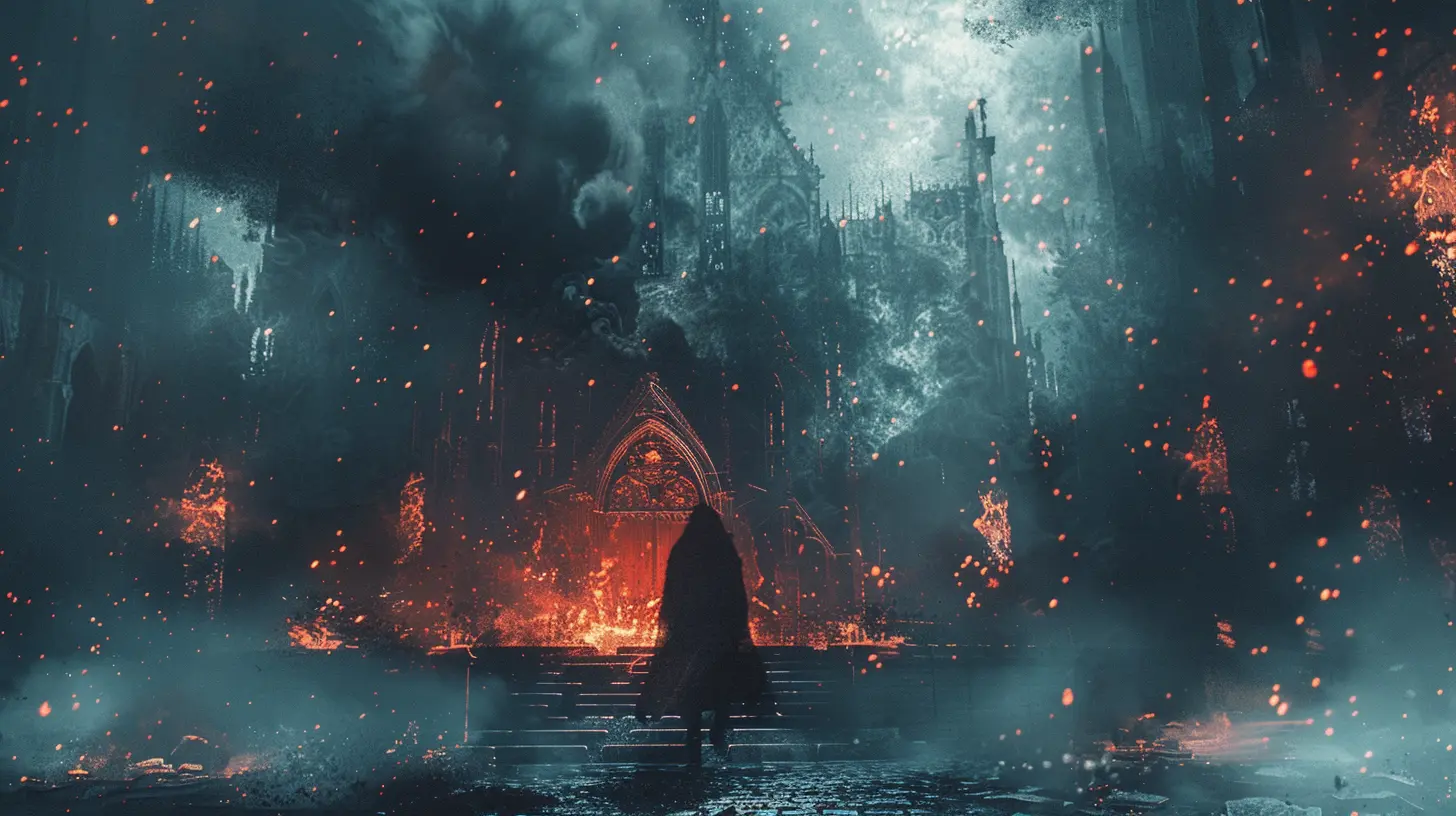
Identity: Finding Yourself in Sound
Let’s get personal for a sec. Ever played a game where the music just “got” you? Like it echoed your own thoughts or reminded you of home? That’s the magic of music capturing identity.Today, developers are more mindful of representing diverse backgrounds—not just in characters or stories, but in music too. Whether it’s the Afro-futuristic beats in games like Aurion: Legacy of the Kori-Odan, or the South Asian-inspired score of Raji: An Ancient Epic, music becomes a mirror for underrepresented identities.
Representation through music helps players feel seen. It says, “Hey, your culture matters here.” That’s powerful stuff.
And don’t forget—players bring their own identity into gaming spaces. Your soundtrack might remind you of your own country, your family traditions, or your struggles. It creates a personal connection that’s tough to shake.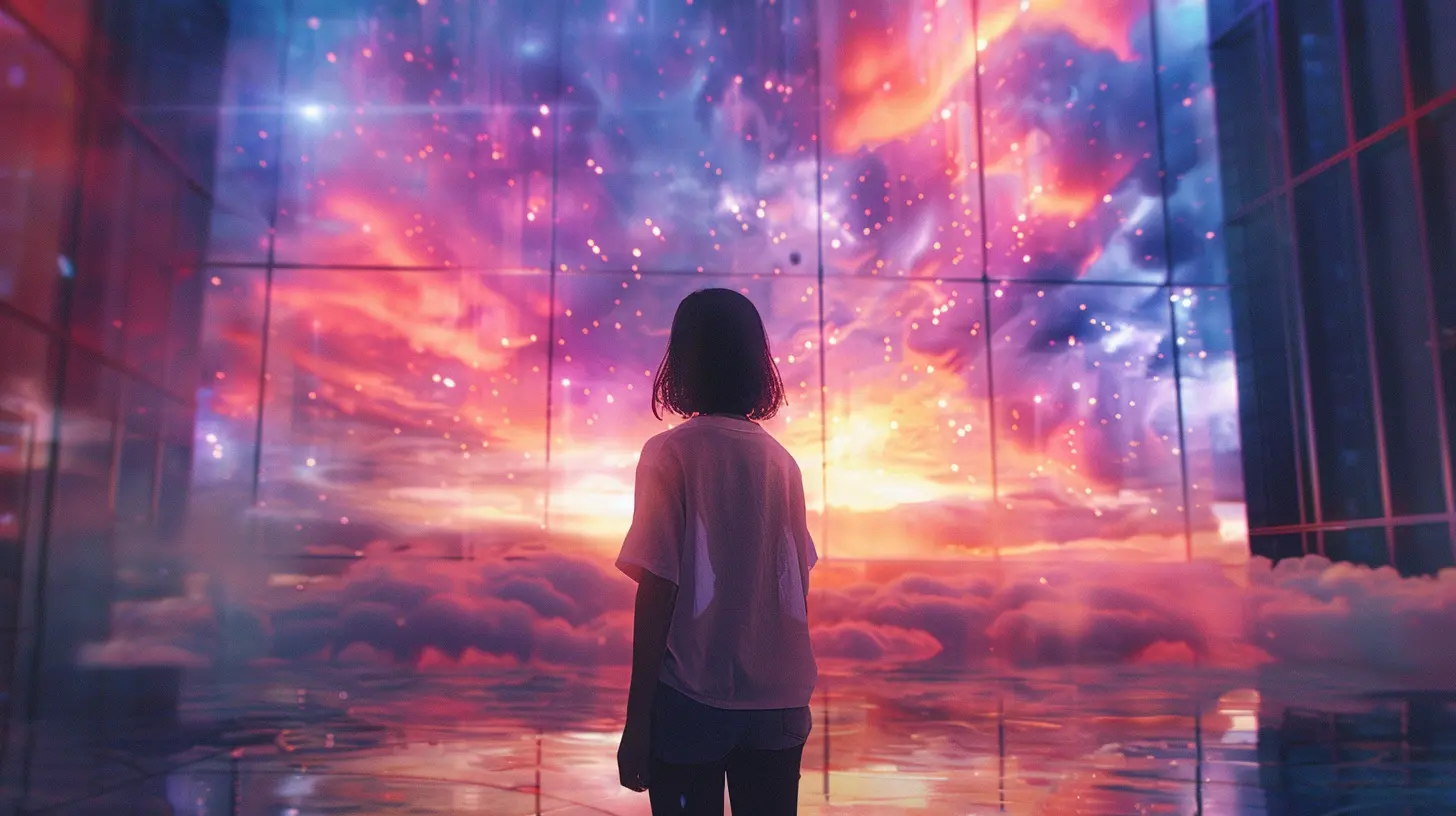
Music as a Tool for Inclusion
Let’s be real—gaming hasn’t always been the most inclusive space. But things are changing. And music is one of the soft-power tools helping to open that door.Imagine you’re a Latinx player and you hear reggaeton in a game soundtrack. Or you’re Middle Eastern and a game uses your traditional scales and rhythms. That connection? It validates your experience. It creates a sense of belonging in a world that often overlooks you.
Games like Never Alone (inspired by Alaska Native stories) and Mulaka (influenced by Tarahumara culture in Mexico) go the extra mile. They don’t just showcase indigenous cultures—they infuse music deeply rooted in those communities.
This isn’t just cool from a gameplay angle. It’s culturally important. It tells players: “You’re part of the story too.”
Nostalgia, Memory, and Emotional Identity
Let’s switch gears. Ever played an old game and felt like you were 12 again? That’s nostalgia at work. And music is the biggest nostalgia trigger in gaming.Think about those first notes of the Super Mario Bros. theme. Or the opening piano riff from Final Fantasy X. Goosebumps, right?
Music binds memory and identity. It anchors us to specific times in our lives. When you replay those games, you’re not just chasing fun—you’re chasing a feeling. A part of your identity is tied up in those notes.
For many of us, the soundtrack of our youth wasn’t on the radio—it was in our games.
How Game Developers Use Music As a Cultural Compass
Let’s give credit where it's due. Game devs don’t just pick random tracks and slap them over cutscenes. There's strategy, emotion, and culture behind every beat.First, they research. Especially when working with cultures outside their own, devs might hire musicologists or collaborate with local artists. This avoids stereotypes and helps build genuine soundscapes.
Second, they integrate. It’s not enough to sprinkle a sitar here or a didgeridoo there. The music needs to be woven into the game's DNA. Think of it like seasoning food—not too little, not too much, and definitely authentic.
Finally, they adapt. Some composers create dynamic soundtracks that shift based on player actions. The music almost becomes alive, adapting to choices. That interactivity adds another layer of personal identity to the gaming experience.
The Rise of Hybrid Genres and Global Sounds
We’re living in the era of genre-blending. Just like music outside of games is mixing styles (hello, K-pop, Afrobeat, EDM fusions), game music is following suit.Games aren't afraid to combine traditional folk sounds with pulsing electronic beats. Titles like Persona 5 mix jazz, rock, and J-pop to create something totally unique—and incredibly stylish.
Why does this matter? Because fusion = inclusion. Hybrid music reflects our increasingly global, multicultural world. It lets games speak to multiple audiences at once, without feeling forced.
Soundtracks That Became Cultural Phenomena
Some in-game soundtracks become bigger than the games themselves. They transcend pixels and enter pop culture.Think of The Legend of Zelda’s iconic themes. Or the haunting score from The Last of Us. These soundtracks have been performed in symphonies, streamed millions of times, and even studied in music schools.
They don’t just reflect culture—they become culture.
And gamers identify with them. Wearing a Persona 5 shirt or attending a Final Fantasy concert isn’t just nerdy—it’s a badge of identity.
Player-Created Soundscapes
So far, we’ve mostly talked about developer-designed music. But what about players? Gamers often create their own audio journeys—through mods, customized playlists, or in-game radio stations (looking at you, GTA).This form of musical identity is DIY culture at its best. It lets players remix the game to match their mood or background. Maybe you swap in lo-fi beats when building in Minecraft. Or maybe Skyrim battles feel better with some heavy metal. Whatever it is, that choice reflects who you are.
Games become canvases, and music? Your paintbrush.
Closing Thoughts: Culture, Connection, and Controller Vibes
At the end of the day, video games are about connection. To stories, to worlds, and—most importantly—to ourselves. Music is the soul of that connection. It tells us where we are, reminds us where we came from, and sometimes, gives us a glimpse of where we’re going.In a world where borders blur and identities expand beyond simple labels, games that use music to reflect culture aren’t just entertaining—they’re vital. They help us feel seen, heard, and understood.
And that’s the ultimate power-up.
all images in this post were generated using AI tools
Category:
Original SoundtracksAuthor:

Lucy Ross
Discussion
rate this article
2 comments
Wilder Carter
This article beautifully highlights the profound connection between music, culture, and identity within gaming. It's fascinating to see how soundscapes enhance narrative depth and foster community. Exploring these intersections not only enriches the gaming experience but also invites players to reflect on their own identities. Well done!
December 27, 2025 at 5:56 PM
Soryn Alexander
This article beautifully highlights how music in games shapes and reflects cultural identities. It would be interesting to explore specific game examples that illustrate this connection further. Engaging with player stories could deepen our understanding of these intersections even more!
July 26, 2025 at 3:31 PM

Lucy Ross
Thank you for your insightful comment! I agree that exploring specific game examples and player stories can greatly enrich our understanding of music's role in shaping cultural identities in gaming. I'll consider this for future discussions!

